My favorite game at GDC is a first-person puzzler where you build a mansion of mysteries one room at a time
I only played Blue Prince for an hour, but a day later I'm still playing it in my head.
Stop me if you've heard this one: you've inherited an ornate mansion on a sprawling estate from a mysterious relative, but in order to claim it you have to complete a challenge listed in that relative's will. A classic premise.
But there's a pretty hefty twist on that formula in Blue Prince, a first-person strategy puzzle game from Dogubomb Studios and publisher Raw Fury. As you explore the mansion, you're actually building it, room by room, step by step. What's behind the next door? In a way, that's up to you.
Blue Prince is a little tricky to explain, so I'm gonna start by saying I got to play it for an hour at the Game Developers Conference in San Francisco—and quite honestly I'm still playing it. In my head. Right now. I solved a few puzzles, but I'm still wrestling with all the ones I didn't solve during my hour, and even trying to figure out if some of the things I came across were parts of puzzles without me even realizing it.
You begin Blue Prince standing in the entryway of the mansion, a foyer with closed doors to the north, east, and west. Walk up to a door and turn the knob, and you're presented with three room cards. One might be a study, another could be an observatory, the third, a closet. Whichever card you pick, that's what you'll find when you open the door.
I'm still playing it. In my head. Right now. I solved a few puzzles, but I'm still wrestling with all the ones I didn't solve during my hour.
The mansion you've inherited is essentially an empty blueprint, a grid that you slowly fill in as you open doors and choose new room cards. Each room type has different properties and contents: the study might have a cryptic note to read, a photo to examine, maybe a key in a drawer or an item like a shovel. The observatory has a massive telescope that serves as a puzzle: my guess is it should be pointing at something besides the wall, so there's probably some mechanisms you can use to move it around. The closet, meanwhile, has a breaker box with lots of switches to flip to turn lights on and off in different rooms in the mansion. That can be useful, but that closet is also a dead end, and that takes us to another element of Blue Prince: strategy.
At the far end of that empty mansion grid is a square simply labeled "antechamber," and during my hour I tried (and failed) to build my way over to it. It's tricky for a few reasons: rooms have different layouts and while I was trying to build my way north, the cards I was given didn't always have doors in their north walls, so making a straight line of rooms was out of the question. There are also gems to collect as you play, sometimes as rewards for puzzles, occasionally just stashed around rooms, but some room cards require a gem or two to use. More than once I was making a beeline north to that antechamber, but had to turn east or west instead.
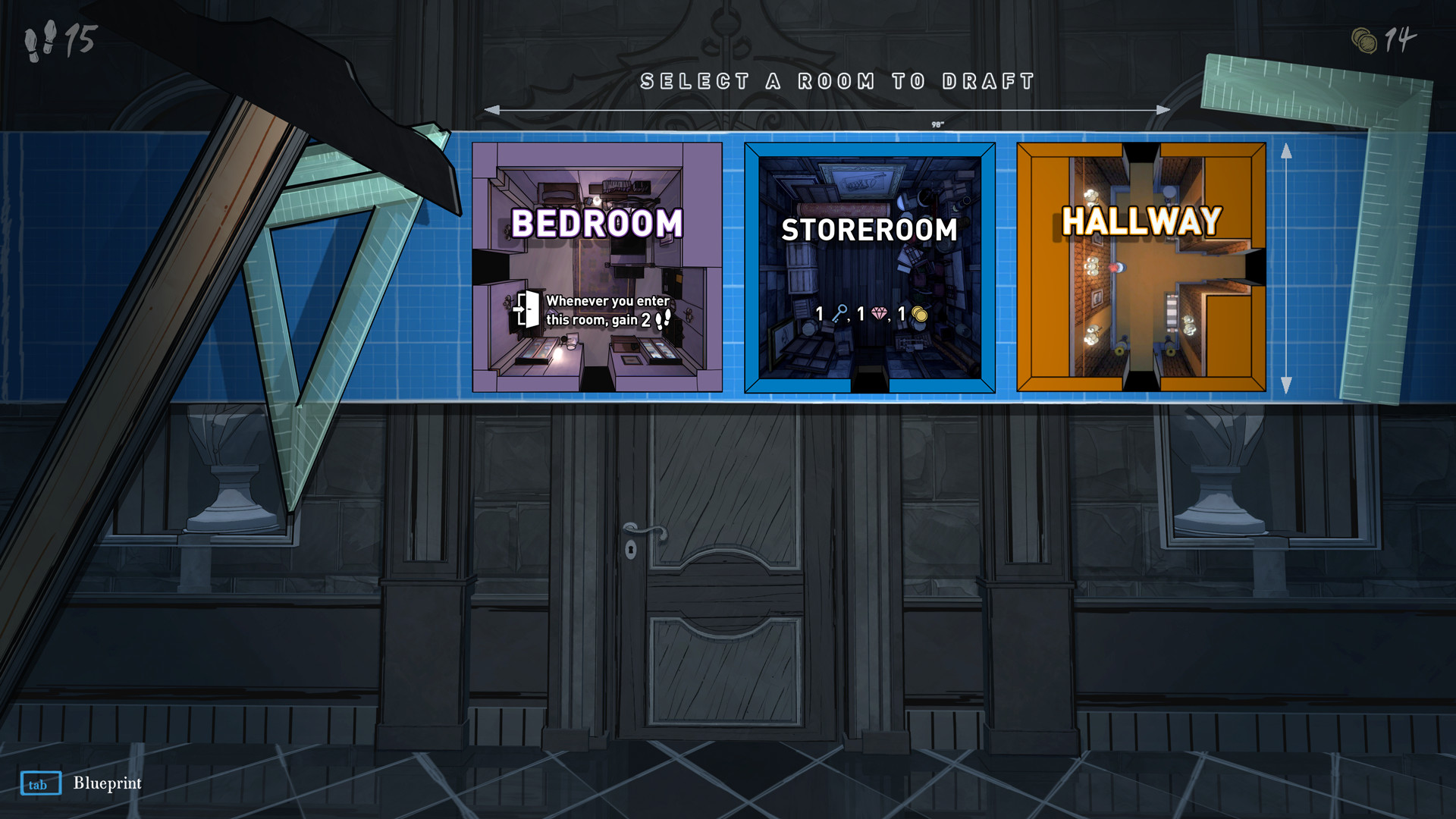
Step-by-step
There's more. Each time you enter or leave a room, it will cost you a step. When I began my session I had fifty steps, which seemed like plenty to reach that antechamber, but the more turns east or west I made the more steps it cost me. And then there's the backtracking. When I plopped down that closet with the breaker box, it had electrical switches for several different rooms in it. It seems natural to flip a switch and then head through the mansion to find the room the switch is connected to, but each time you pass through a doorway, a step ticks down.
Keep up to date with the most important stories and the best deals, as picked by the PC Gamer team.
Conservation of steps is going to be key in Blue Prince. I spent a lot of time flicking my eyes up to see my total step count, because if you deplete them, the day ends and the mansion you've been carefully laying out resets. The next day you'll start with a blank grid again and start rebuilding, but you'll retain anything you've gathered along the way.
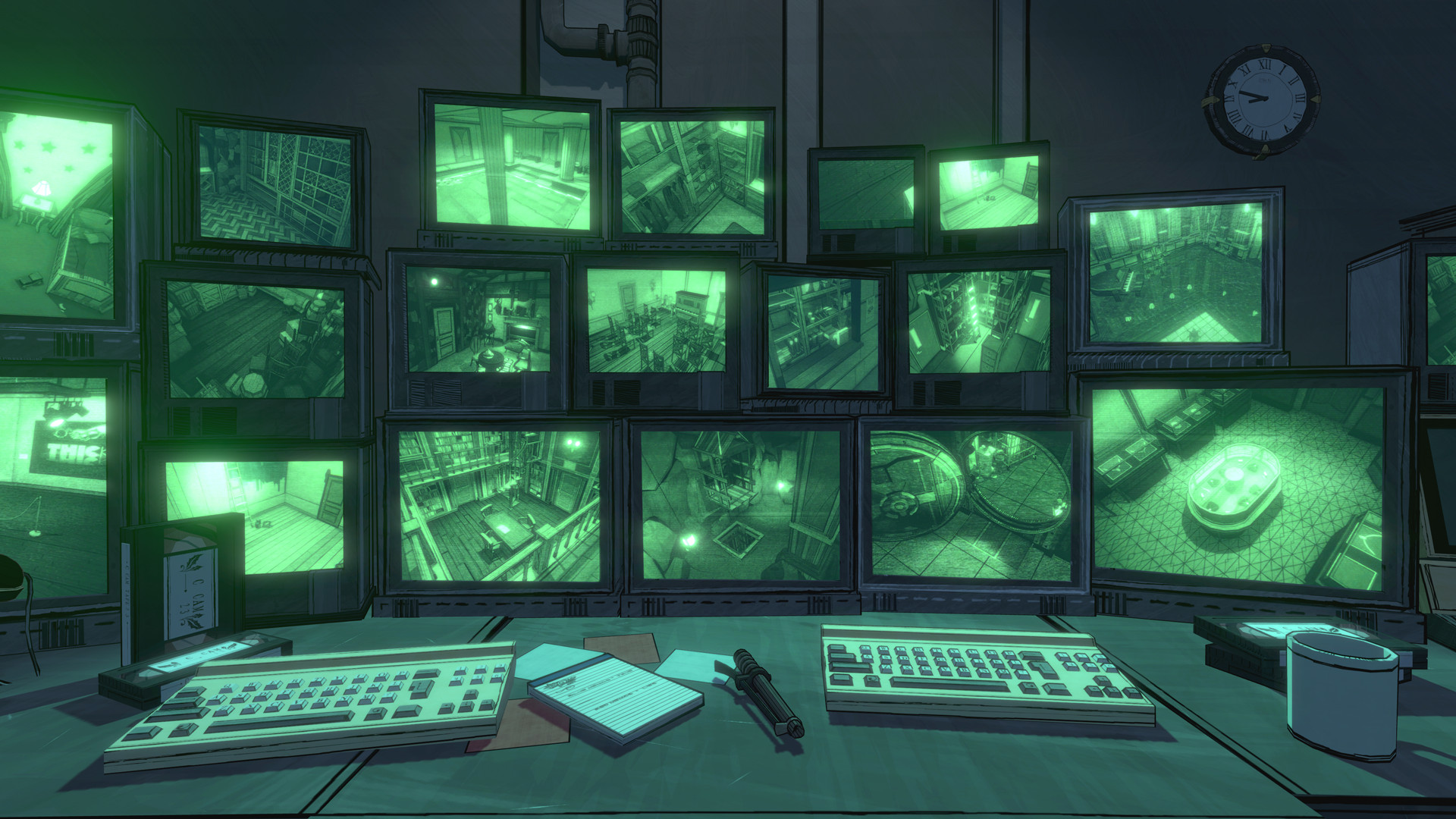
Have I even mentioned that all these rooms you're laying down are full of clues, items, puzzles, and little mysteries? I'm not going to spoil anything, but each and every room card I played gave me a new little space to explore with so many details I was always hesitant to move onto the next room.
Some puzzles are contained to the rooms they're in: a parlor presented me with three labeled boxes and a key to open only one of them, and figuring out which one took some mental gymnastics. Other puzzles are spread throughout the mansion, so a clue or item might not solve anything in the room you find it in. In one chamber I examined a photo with a magnifying glass and found some numbers, and later (much later), in another area I found a combination lock that opened with those numbers.
Have a notepad handy, in other words.
There are plenty of riddles I didn't get close to solving during my hour with Blue Prince… and I'm still trying to solve them in my head. Again, I'll be vague here, but as my mansion grew and grew, I kept seeing framed pictures on the walls in different rooms: a fishing pole, a playing card, an automobile, and around a dozen more. The developers who were watching me play didn't give me hints, and I frankly didn't want any—solving the few puzzles I did was too satisfying to simply be handed answers—but they at least let me know those pictures were part of a puzzle of some kind, so I wasn't just inventing riddles that didn't exist.
It's been a while since a puzzle game grabbed me so quickly, but I'm already intrigued by Blue Prince and can't wait to spend more than an hour (and more than 50 steps) exploring it. No release date yet, but the Blue Prince Steam page is live.
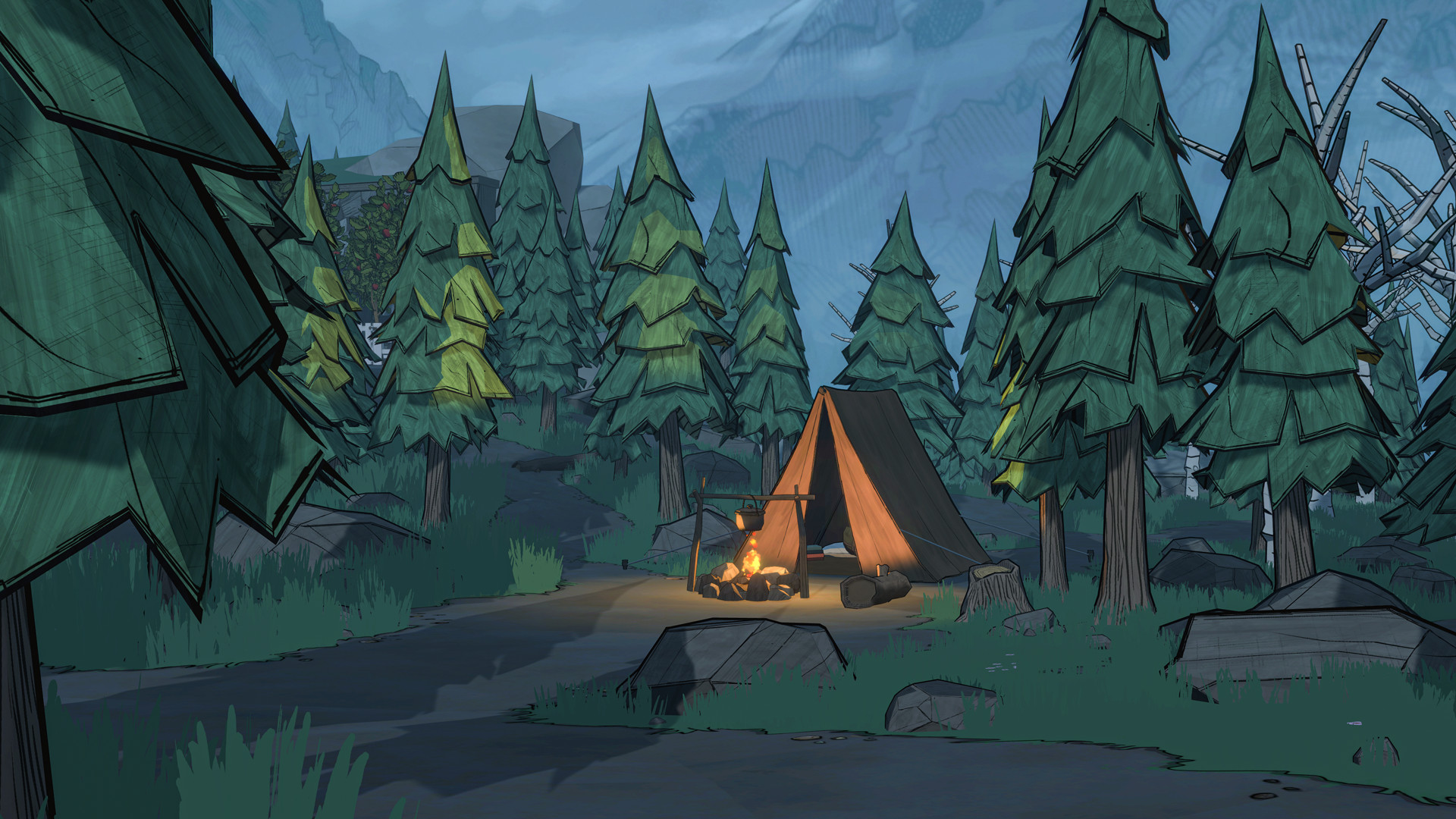
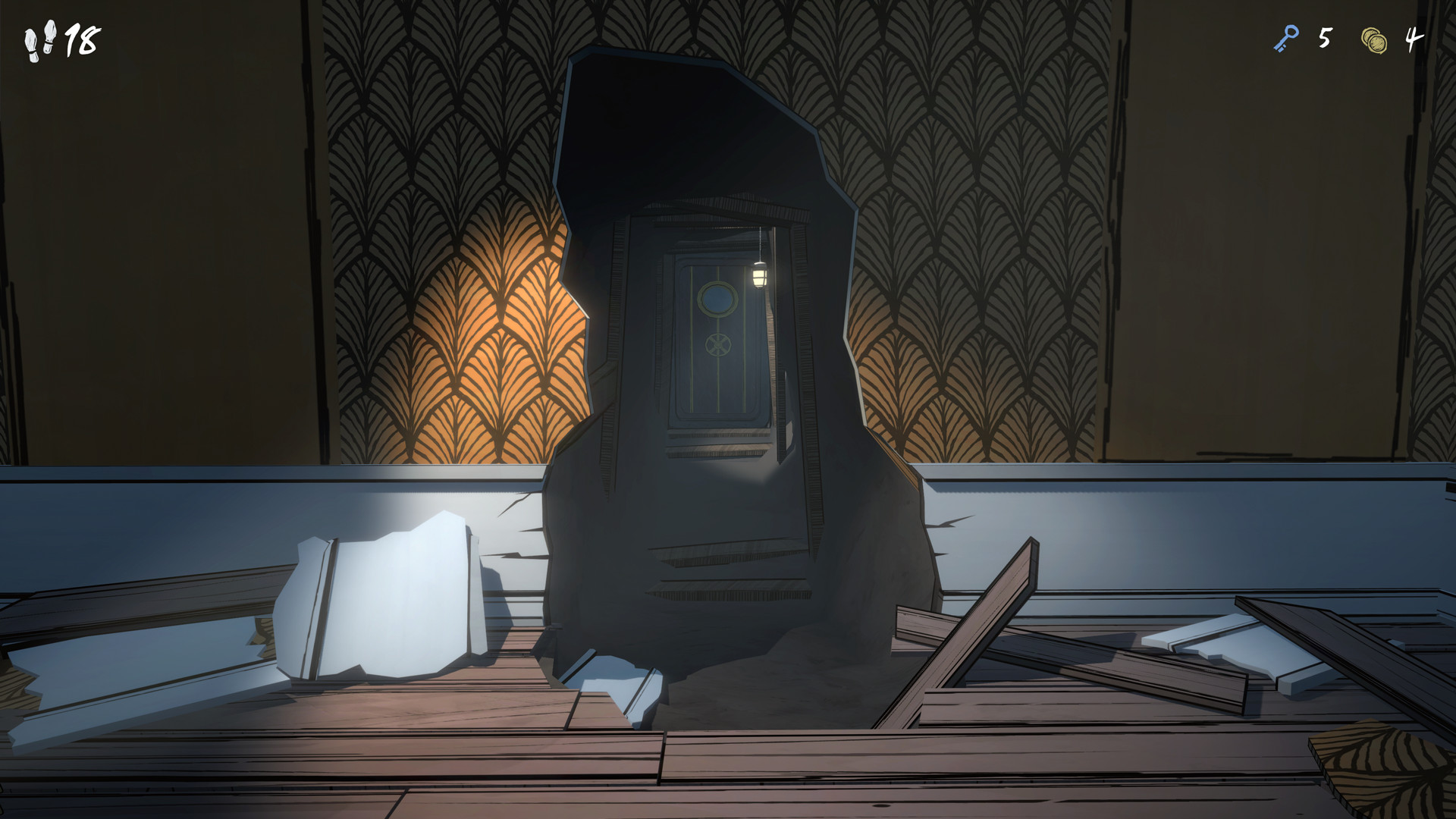
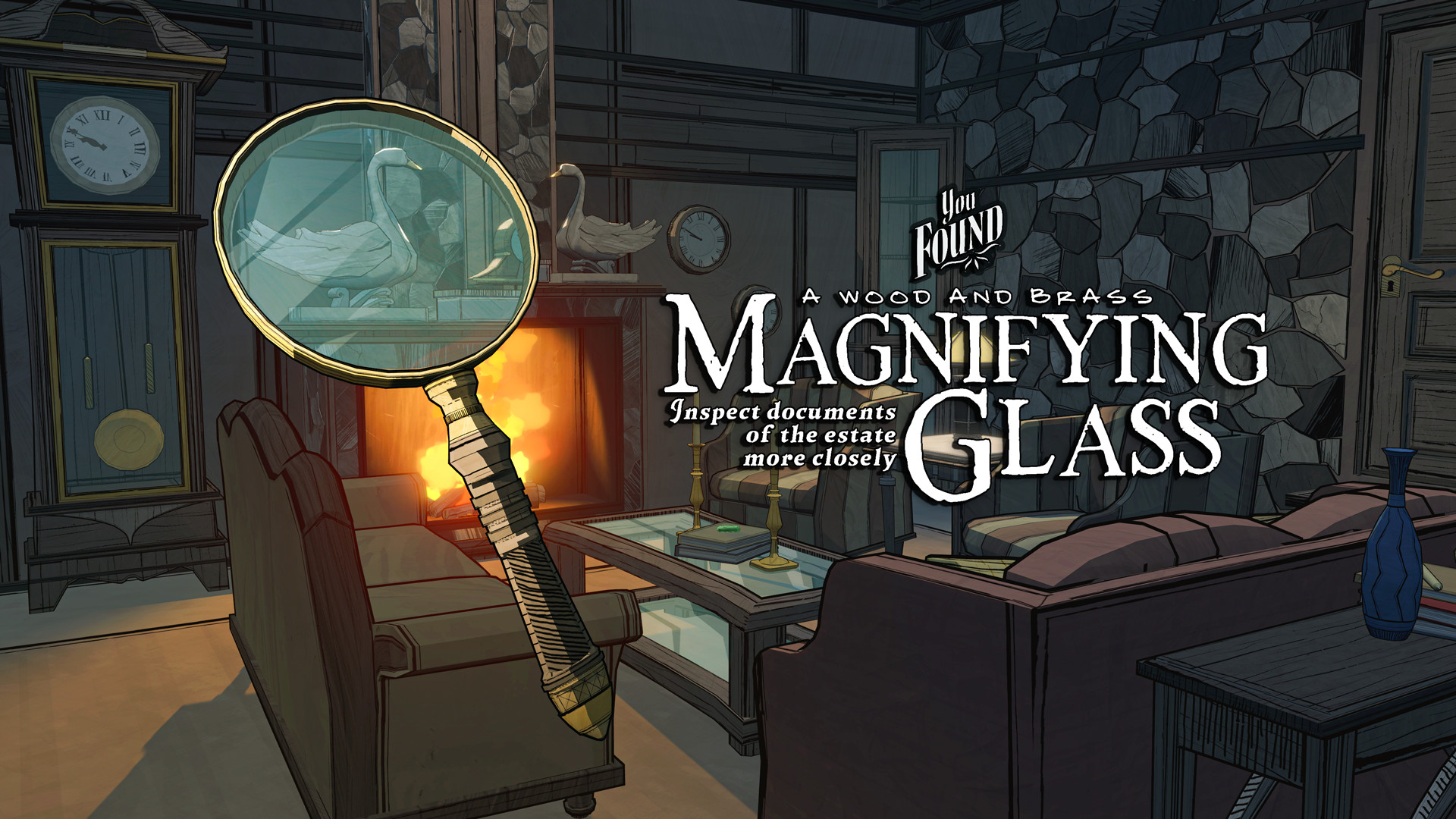
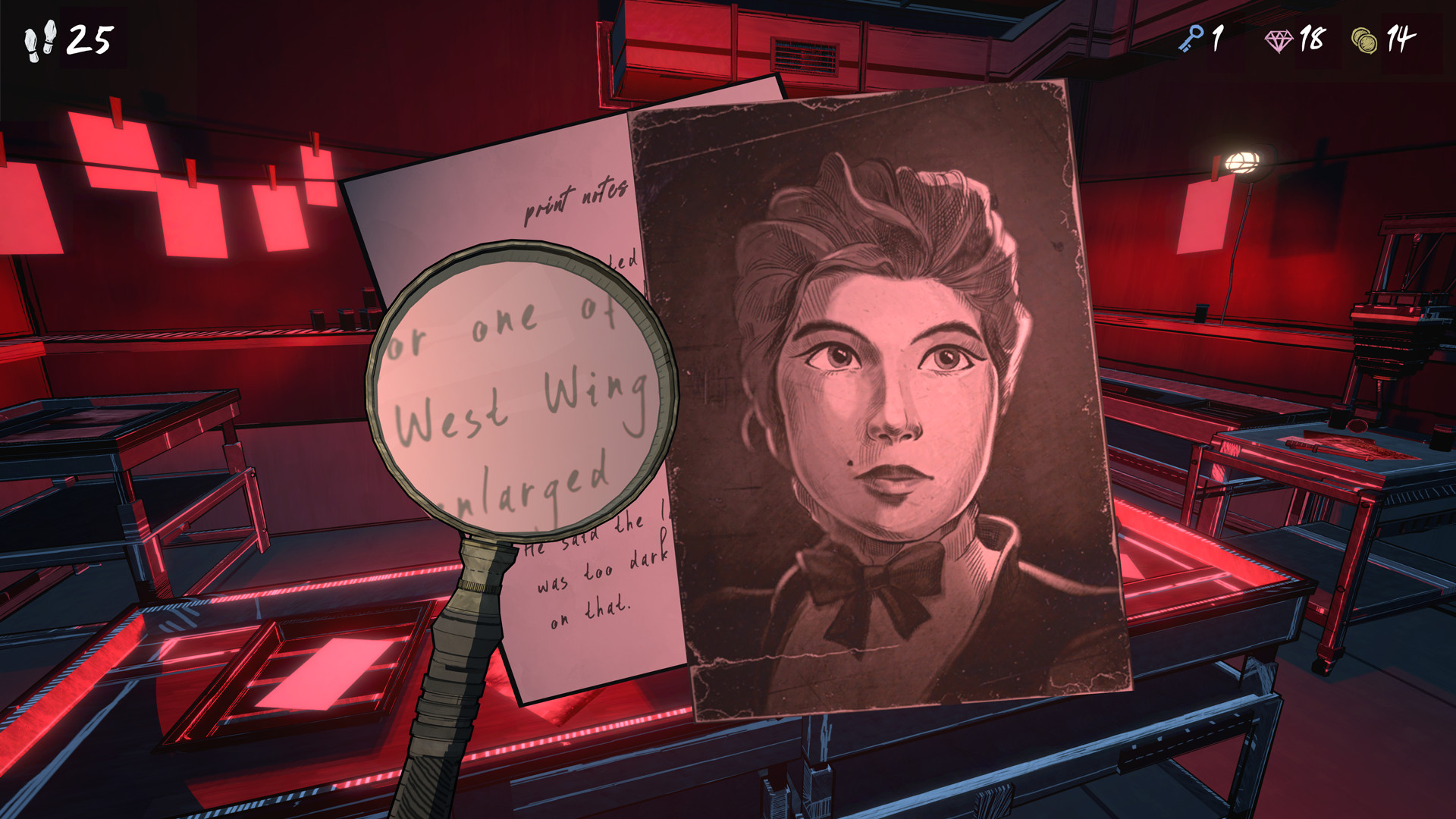
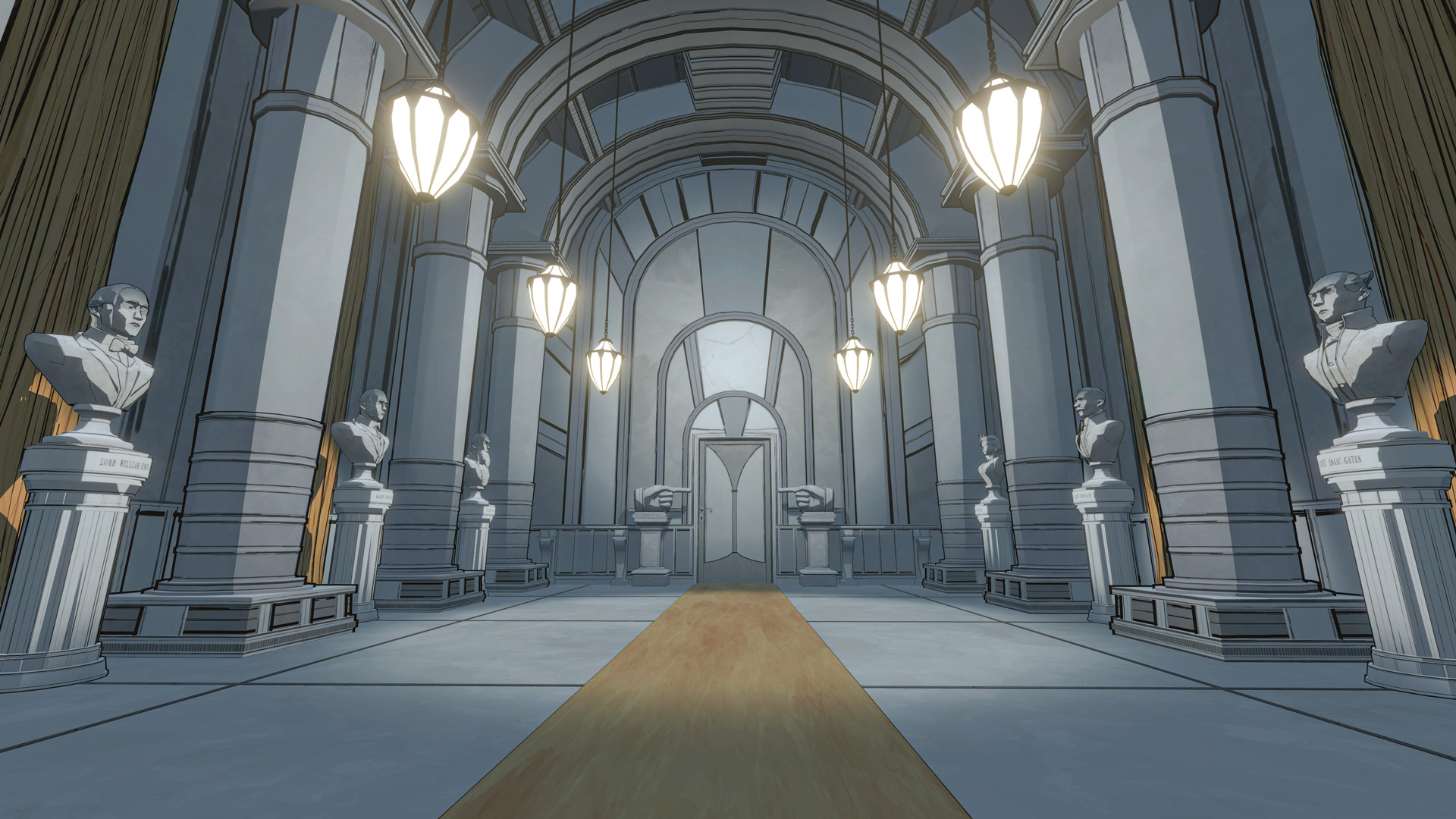
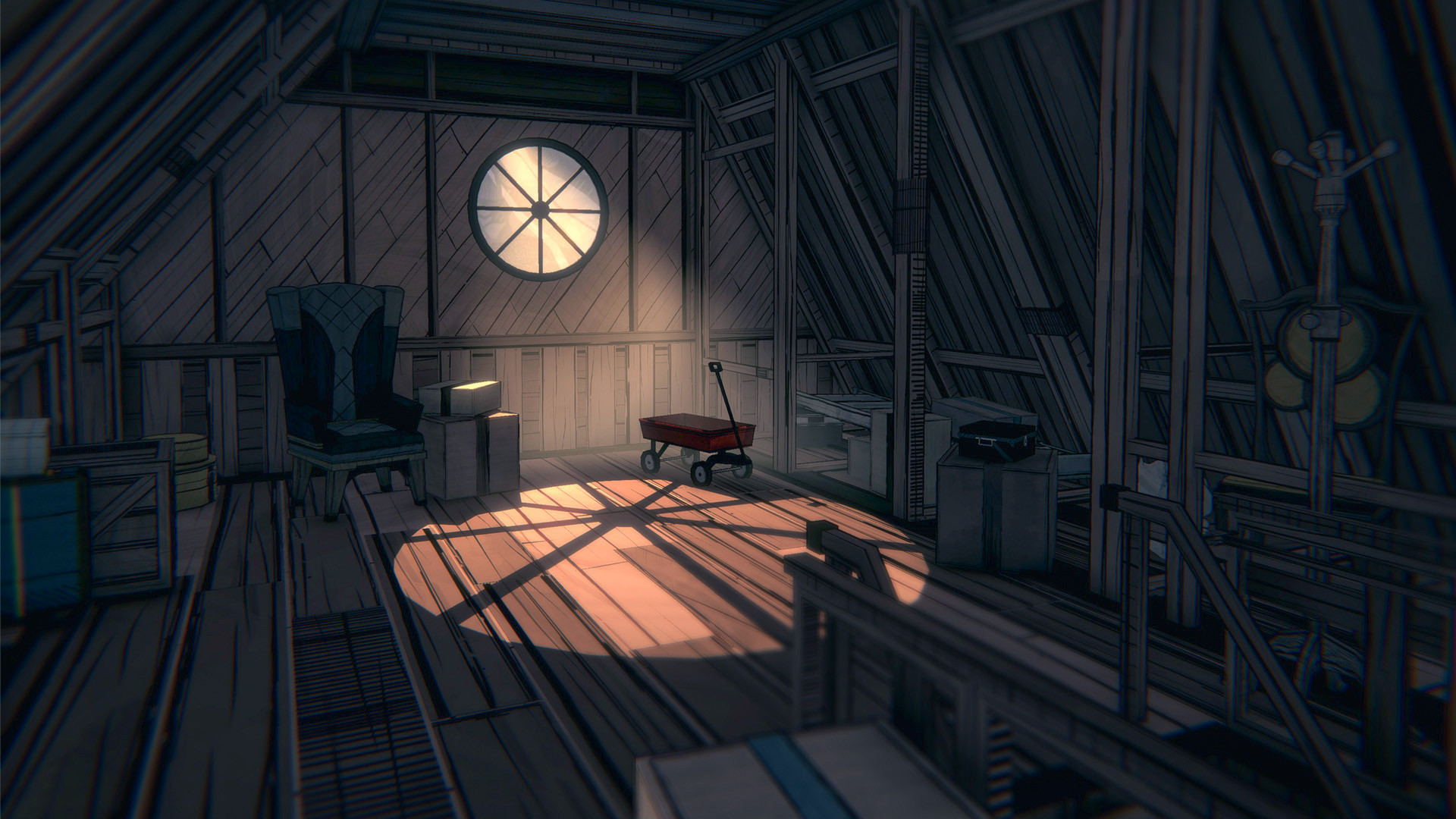
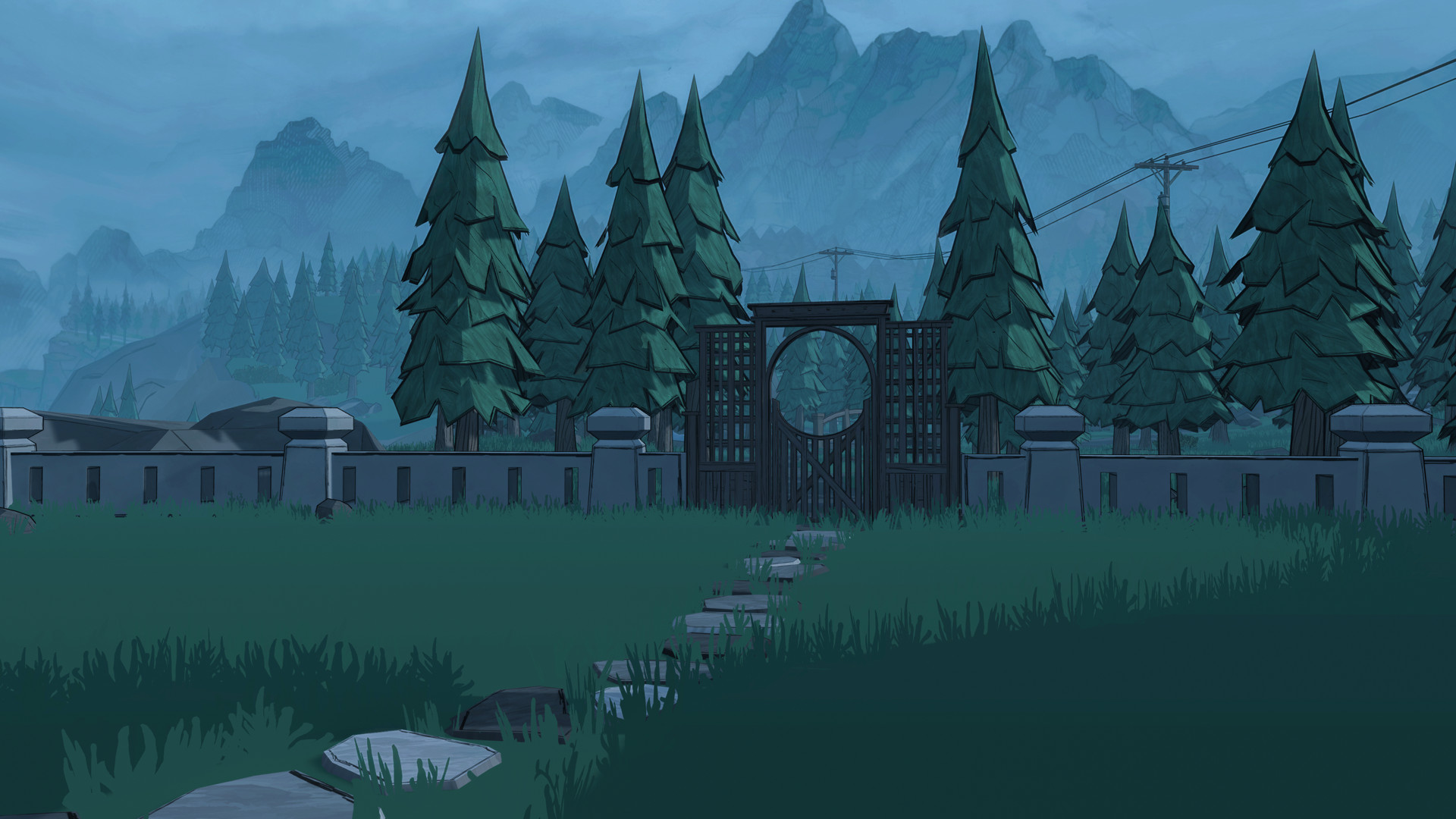

Chris started playing PC games in the 1980s, started writing about them in the early 2000s, and (finally) started getting paid to write about them in the late 2000s. Following a few years as a regular freelancer, PC Gamer hired him in 2014, probably so he'd stop emailing them asking for more work. Chris has a love-hate relationship with survival games and an unhealthy fascination with the inner lives of NPCs. He's also a fan of offbeat simulation games, mods, and ignoring storylines in RPGs so he can make up his own.

